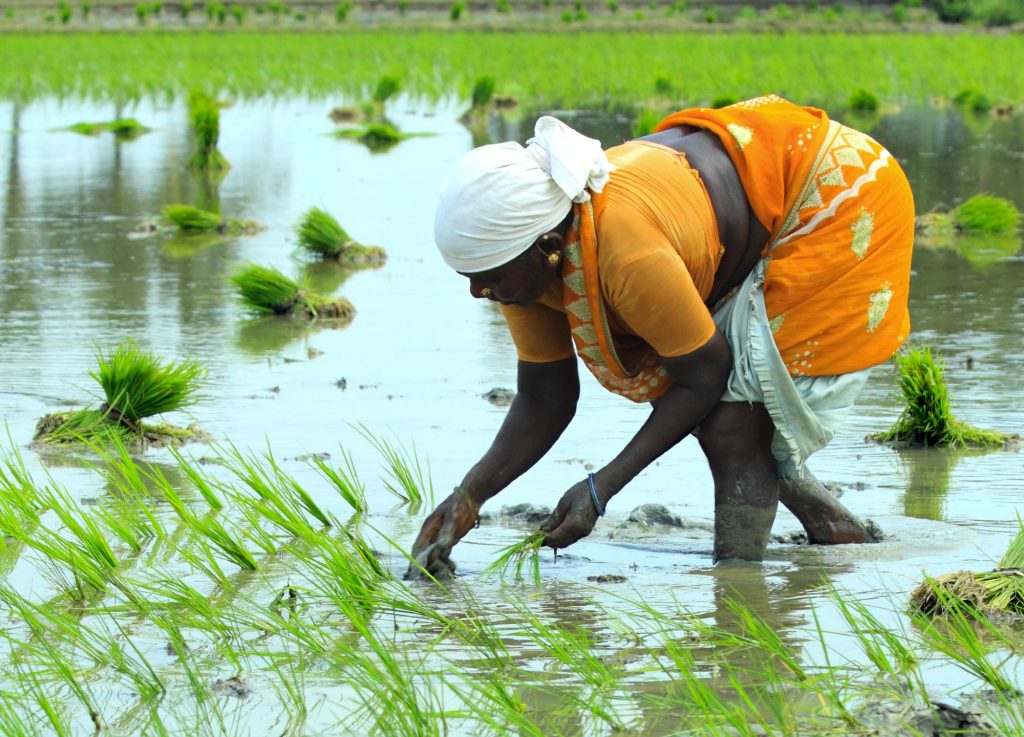There’s a new goal post for agriculture: it’s nutrition
By Shenggen Fan, Sivan Yosef, and Rajul Pandya-Lorch Agriculture is the single most important innovation in human history. Over the course of thousands of years, it has staved off hunger, allowed populations to leave their hunter-gatherer lives behind, and freed up time for other pursuits (like inventing writing and the wheel!) that have propelled societies…
Can a ‘diet’ of digital data really help feed the world?
Last week (29 January 2019) CABI was awarded a $1.49 million grant from the Gates Foundation to work with them to help increase food security in India and Ethiopia through better access to data on soil health, agronomy and fertilizers. In this blog Communications Manager Wayne Coles looks at whether or not the use of…
Fertilizer Optimization Tool helps return son to teacher training school
By Monica Kansiime, Scientist Seed Systems, based at CABI in Nairobi, Kenya In a previous blog post I outlined how the Fertilizer Optimization Tool (FOT) is paying dividends for farmers – helping them, in some cases, to report a seven-fold increase in their yields. Charles Wafula is a farmer and resident of Buhehe in Uganda who…
Fertilizer Optimization Tool pays dividends for farmers in Uganda
By Dr Monica Kansiime, Scientist Seed Systems, based at CABI in Nairobi, Kenya A decision support tool that allows an extension agent to take into account a number of the farmers’ circumstances and investment goals to maximize the benefits of fertilizer use on their farms is starting to pay dividends in Molo Sub-County in Uganda – with…
Safer food through Aflatoxin control in Pakistan
Aflatoxins are a group of toxins produced by certain fungi found in crops such as maize, peanuts, cottonseed and tree nuts. The fungi responsible, Aspergillus flavus, can contaminate crops before and after harvest as well as contaminate animal products if infected feeds are given to livestock. Consumption of these toxins in high concentrations can contribute…
One health – human, animal, environmental and plant health
Ahead of One Health Day tomorrow (3rd November 2018), Robert Taylor, CABI’s Editorial Director, explores the relationships between human, animal, environmental and plant health… The ‘One health’ initiative launched in 2007 was designed primarily to break down the barriers between human and veterinary medicine, particularly for dealing with zoonotic diseases. The link between BSE and…
‘Digging deep’ to strengthen the potato value chain in Pakistan
CABI in Pakistan, under its ACIAR-funded ‘Strengthening Vegetable Value Chain in Pakistan’ (SVVCP) project, is committed to improving the value chain of vegetables for smallholder farmers so they can improve their livelihoods. Dr Babar E. Bajwa, Project Leader, reports on the progress being made so far… Potato is a major crop in Pakistan with great…
Embracing ‘stakeholder interaction’ for better business strategy and integration in Pakistan
Dr Umair Safdar, Development Communications Executive at CABI in Rawalpindi, Pakistan, looks at ‘stakeholder interaction’ for better business strategy and integration in Pakistan through the cluster-based Agricultural Transformation (CDBAT) Project… Stakeholders strongly influence a project’s success, particularly for complex projects with heterogeneous stakeholders. Therefore, understanding their influence is essential for project management and implementation.
Did I really eat that?
There’s been a thing on social media for a while of photographing what you’re about to eat – whether it’s to brag about what fancy restaurants you go to or to show off your cooking skills, with hashtags such as #Eatingfortheinsta, #foodie and #foodporn. But food photography could play a useful role in helping dietitians…
World Food Day 2018 – Feeding our appetite for food security
By Dr Dennis Rangi – Director General, Development at CABI based in Nairobi, Kenya On this World Food Day 2018 the issue of feeding the world has never been in sharper focus. By 2050, agriculture will need to produce almost 50 percent more food, feed and biofuel than it did in 2012 just to meet…



